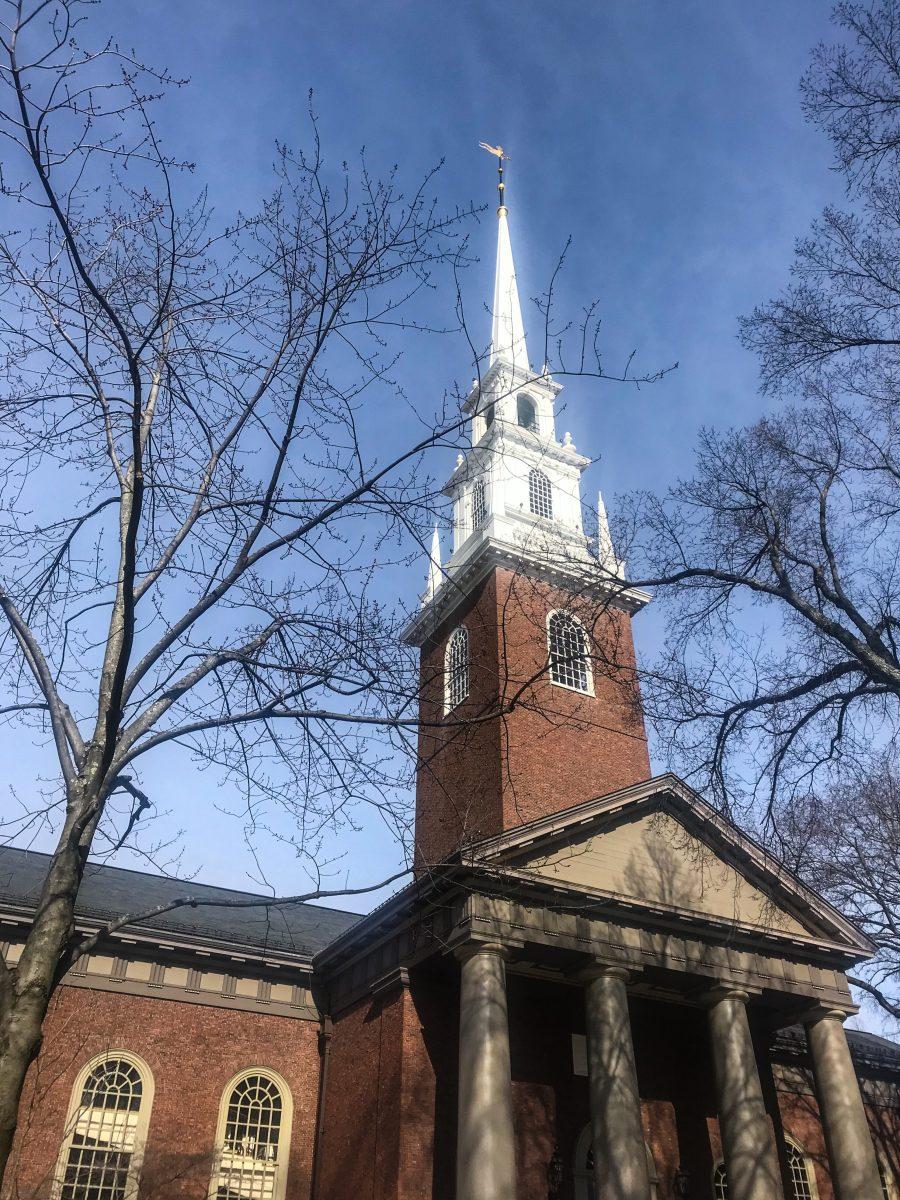Many Wellesley students choose to continue their education after their four years here. Eighty percent of Wellesley graduates, according to the school’s website, attend graduate or professional school within 10 years of obtaining their undergraduate degree. Of those that decide to stay in Boston, some choose to continue their postgraduate education at Harvard University, where graduate students are moving to unionize for fair treatment by administration.
Current graduate students’ education may change drastically on April 20. Harvard is, for the second time in two years, voting on whether or not to unionize its graduate students on the grounds that they are both students and workers. The graduate student unionization effort has been going on for “three to four years,” according to Niharika Singh, one of the organizers and a fourth-year Ph.D student in public policy.
“I got involved about two and a half years ago. The effort has been going on for a little bit longer than that,” she said. In 2016, the rights of student graduate workers at private universities to collectively bargain were extended by the National Labor Relations Board, which, along with rising economic uncertainty, gave rise to a wave of private university graduate students attempting to unionize at schools such as the University of Chicago, Cornell University, Brown University and Yale University.
“We’re here because we like our research; we like doing our research. But that shouldn’t come at the expense of not being able to afford rent or other amenities,” Singh said. Students who support the union say that it would guarantee graduate students a financial stability and peace of mind they wouldn’t have otherwise. Although they would have to pay some portion of their stipend in union dues each year, they’d have higher stipends overall, which Singh and her fellow organizers believe would be worth it.
“Having kind of surprising changes year to year is a lot for people who are not kind of independently financially stable, which is most of us,” she added. “Like, for instance, at Harvard our healthcare premiums for dependents shot up like $800, which is a big hit to a budget. So I think a union contract provides the ability to plan financially, for at least the two, three years that the contract is in place, and that’s really important for people who aren’t independently financially stable, and that’s going to be the majority of the graduate student population.”
At Harvard, 54 percent of the graduate student population are studying within the natural sciences, and the remaining 46 percent study the humanities or social sciences. As Kaylyn Williamson ’11 and Alexa Jackson ’13, former Wellesley students who now study the natural sciences, put it, there is a divide between the natural sciences students and the other students in terms of whether unionization would be helpful.
Williamson, a second-year biomedical sciences student, said, “I think roping all of graduate students across the entire university into one bargaining body is not necessarily the best way to go, and that’s one of the main reasons I’m voting no, because my needs as a student in a science program are very different from those of a student in a humanities-based program.” Students in science programs have guaranteed funding, so they often don’t end up teaching as many classes as students in humanities programs.
“My program treats us quite well, you know, we have the highest stipends in the country, we have great healthcare access, so really the benefits that the potential unionization would provide are very low in comparison with the potential costs,” Williamson added. “So, I think the biggest bargaining power that a union would have is obviously the ability to strike, and that goes against what a graduate student wants. We’re all working towards our own dissertations on our own timelines, and if we have to pause our work, that actually hurts us and pushes back our potential graduation dates,” she continued.
Singh, however, says that potential unionization through the United Automobile Workers Union—which has also organized with Boston College and Columbia University, among others—wouldn’t just be about negotiating for salaries. Currently, Harvard, like many other universities, is under Title IX investigation and is undergoing three separate investigations. Singh believes that if the April unionization vote is successful, that could help students with their Title IX cases. The union would be able to advocate for students, she said, although “Ultimately, it’s still people who are employed within the university administration who are making decisions. I’m not saying that Title IX officers aren’t doing their job, I’m just saying that it’s different to have an independent arbiter or someone who’s from the union looking out for only your interests relative to a place where there are other considerations at place.”
Jackson, a third-year student in the Chemical Biology Ph.D. program at Harvard, is worried that if the vote successful, unionization would have a negative impact on her as a natural sciences student.
“In terms of Ph.D. candidates in the natural sciences, basically, the bottom line is, the reason that I don’t think it would be good for us is that the concerns that we do have, a union is not an effective vehicle for addressing them. We have a guaranteed set income from the university,” she said.
Jackson added that she believes that the concerns that natural sciences students have would be better addressed one-on-one. “The concerns that natural science students have relate to work-life balance and their relationships with their advisors and their colleagues in the laboratory,” she explained.
She explained that she understands the perspectives of those who support the union. “A lot of the motivation, I think, originally came from the humanities students because, as you can imagine, without that safety net, it’s really kind of a precarious position for them financially. They’re looking at eight or so years of their 20s and 30s kind of not having guaranteed income in a way, which is obviously scary. So I think that it would impact them in terms of having more financial security,” she said.
Harvard originally held its unionization election last November, but due to complications about who was eligible to vote, those results were not counted. The next election will be held on April 20.






